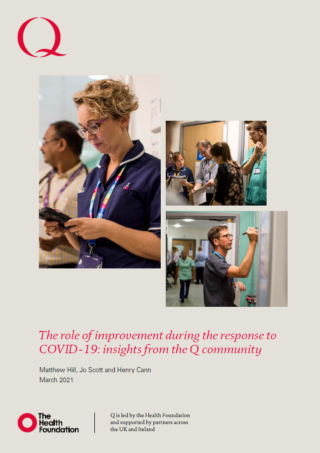
COVID-19 placed unprecedented pressure on the health and care system. Improvement, which offers systematic approaches that can help adapt to change, would be expected to be a useful asset in the response to the pandemic.
We asked Q members, a community of over 4,000 people skilled in improvement about the role of improvement tools, methods, approaches and mindsets in supporting change during COVID-19.
Our analysis drew out three key findings and three recommendations for action to enable improvement to support the health and care system in recovery and beyond.
Key findings
- Improvement played an important role for respondents during COVID-19.
- Improvement took a distinct form in response to the crisis context, providing a profound opportunity to learn for the future.
- Improvement played a more important, valuable, and strategic role during COVID-19 in organisations that had a well-developed approach to improvement pre-pandemic.
Recommendations for action
- Improvers should build on the positive momentum from the pandemic and ensure that improvement plays a central role in
the recovery. - Improvers should reflect on which ways of working and specific solutions developed during the pandemic should continue.
- Improvement needs to be embedded in core ongoing work in ways that are relevant and accessible to those on the front line. Improvers should also galvanise their efforts around shared system priorities.
Download the full report to explore the key findings and recommendations in full.